Author Kathy Baldock and Ed Oxford, a fan of Baldock’s work turned co-sleuth, are heads down in research mode at the Yale Sterling Memorial Library in New Haven, Conn. They are deep in the archives, and when I say deep, I mean they have already been through roughly 60,000 documents. The award-winning documentary 1946: The Mistranslation That Shifted Culture can make even slogging through files look riveting. They are hunting for any commentary on why the word “homosexual” was added to the Bible.
You may unsubscribe from any of our newsletters at any time.
You read that right. The word “homosexual” was not always in the Bible. It first appears relatively recently, in the Revised Standard Version (RSV) published in 1946. The RSV translation committee had voted to combine the Greek words malakoi (soft or effeminate) and arsenokoitai (men who have sex with men, typically in an exploitative context) and translate them as “homosexual.” This of course had disastrous consequences for 2SLGBTQ+ people. But the RSV got it wrong. Using “homosexual” in 1 Corinthians 6:9-10, a verse about sexual assault, was a mistranslation. An error.
Back at the archives, the film captures the moment when Baldock and Oxford find the document — a letter dated Oct. 22, 1959 — challenging the translation committee’s use of the word. David, the letter writer, who omits his last name, makes a compelling case over five detailed pages. We see the reply from the head of the committee. Their correspondence continues, rich in critical analysis. The head of the committee concludes with thanks, saying he will bring it to the team when they next meet. Years later, when they do, the mysterious David is vindicated as the translation team opts to remove the word.
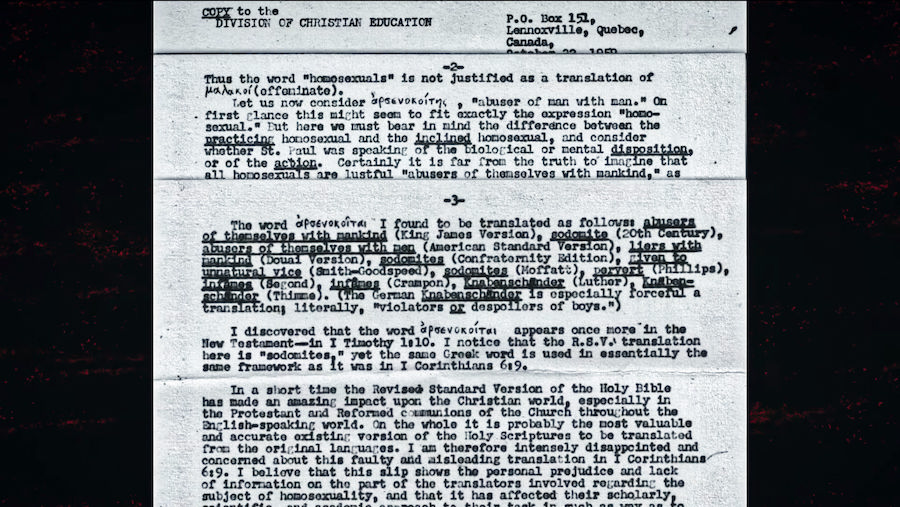
But the updated version was not published until 1971. In the meantime, many biblical translators added the word into their publications based on the RSV. The consequences of religious-driven homophobia play out in the documentary.
One of its main subjects is the filmmaker herself, Sharon “Rocky” Roggio. We also meet her non-affirming pastor father. While much of the film is a Bible-nerd romp, the scenes between Roggio and her father, Sal, are challenging to watch. She told me in an interview that she struggled with “loneliness, depression, alcohol and drug abuse” after coming out and being forced to leave home.
Yet Roggio’s dad is back in her life now. In the documentary, he voices the counter-arguments to the film’s message, and personifies a parent just trying to follow God as best they can. “We wanted people to recognize themselves [and] what’s going on in their families,”Roggio told me.
The documentary refuses to demonize Christians. “Our loved ones, who are our oppressors, [are] victims of bad theology,” Roggio said of the film’s approach. “This isn’t an attack on anybody’s beliefs. This is about a tangible mistranslation in an ancient text that has great influence in our world. …We have the evidence to show that this was a human error.”
More on Broadview:
- David Fearon, who challenged a homophobic translation of a Bible passage, has died at 84
- Early pages of Broadview’s predecessor reveal a mixed legacy on Indigenous-settler relations
- I stumbled across Christianity’s first queer icon — two and a half decades too late
Queer people in many Christian communities have lived those father-daughter scenes personally. Watching Roggio and her father interact, I had to pause the movie to take some calming breaths. I grew up in an affirming United Church but was still in similar conversations way too young, with adults who spoke like they had the Bible and authority of God on their side. And just like Roggio did as a teen, I too have received a letter riddled with the so-called clobber passages of the Bible to help me change my queer ways.
While none of the biblical statements about homosexuality are attributed to Jesus, their weight and authority are undeniable. The crux of 1946 is addressing the scriptures used against gay people, largely through interviews with theological experts, who patiently explain the context of these passages and their true meanings. To confront these passages directly and to learn an affirming interpretation of them is not only a breath of fresh air — it is life-changing.
The film zips along, creates tension — Who is David? Will Roggio’s dad accept her? — and is generally more fun than a movie about homophobia in biblical translation has any right to be. Sadly, the film feels timely as anti-trans rhetoric is ramping up in Canadian politics. As Baldock told me, “It’s a justice issue. And justice is a Christian issue.”
Baldock’s forthcoming book on the subject, Forging a Sacred Weapon: How the Bible Became Anti-Gay, delves deeper into the historical context of the mistranslation. It was Baldock’s lecture series that inspired Roggio, and in lovely symmetry, now Roggio’s film will hopefully drive more readers to Baldock’s meticulous work.
Speaking to Baldock over Zoom, I met a natural storyteller. We talked about her book, yes, but we also talked about hiking, which plays a part in this story as it was on the trail that Baldock, an evangelical Christian, slowly became affirming. On one of her canyon walks near her home in northern Nevada, Baldock met her now dear friend Netto Montoya. When Montoya risked coming out to Baldock as a lesbian, it inspired Baldock to begin what is now years of research.
Want to read more from Broadview? Consider subscribing to one of our newsletters.
Just as Montoya’s courage in coming out became the impetus for Baldock’s work, Roggio’s documentary reminds us how often it is the courage of queer people themselves that moves us toward more accepting and affirming faith communities.
Such was the case for our semi-anonymous letter-writer, David. Thanks to Baldock’s research, we meet him in the film — Rev. David Fearon, a United Church of Canada minister in Nanaimo, B.C. “I used to think that I was called to pastoral ministry in spite of being gay,” he says in the documentary. After Baldock made him aware of the impact of his letter, he realized a deeper truth: “I was called to ministry because I was gay.”
Fearon died earlier this year, but what a legacy to leave behind. To risk challenging a translation team as a young seminarian, and to convince them? And to risk it, closeted, doing it alone and in secret? Honestly, this is Heritage Minutes stuff, Canada. The end of 1946 dedicates the documentary to Fearon, “in loving memory.”
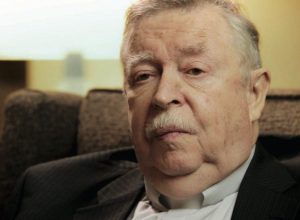
And from there, the credits. I was surprised to find myself moved to tears by the thank yous, some 2,000 names of those who supported this grassroots film.
Baldock signed off with me to go finish making lamb soup — her hiking partner Montoya was coming over that evening, and it is her favourite. I should have passed along my thanks, that she lit such a fire under Baldock.
Baldock is allyship in action, writing despite the hate she receives for her affirming message. “Do you know how much crap I’m going to take for this book, honeybunch?” she said to me.
I hope not. Let’s help this book and film change hearts far and wide.
***
Allison Brooks-Starks writes and leads eco-therapy retreats in Edmonton.
This article first appeared in Broadview’s December 2023 issue with the title “Affirming Evidence.”
Thanks for reading!
Did you know Broadview is the only media organization in Canada dedicated to covering progressive Christian news and views?
We are also a registered charity and rely on subscriptions and tax-deductible donations to keep our trustworthy, independent and award-winning journalism alive.
Please help us continue to share stories that open minds, inspire meaningful action and foster a world of compassion. Don’t wait. We can’t do it without you.
Here are some ways you can support us:
Thank you so very much for your generous support! Together, we can make a difference.
Jocelyn Bell, Editor/Publisher, CEO and Trisha Elliott, Executive Director

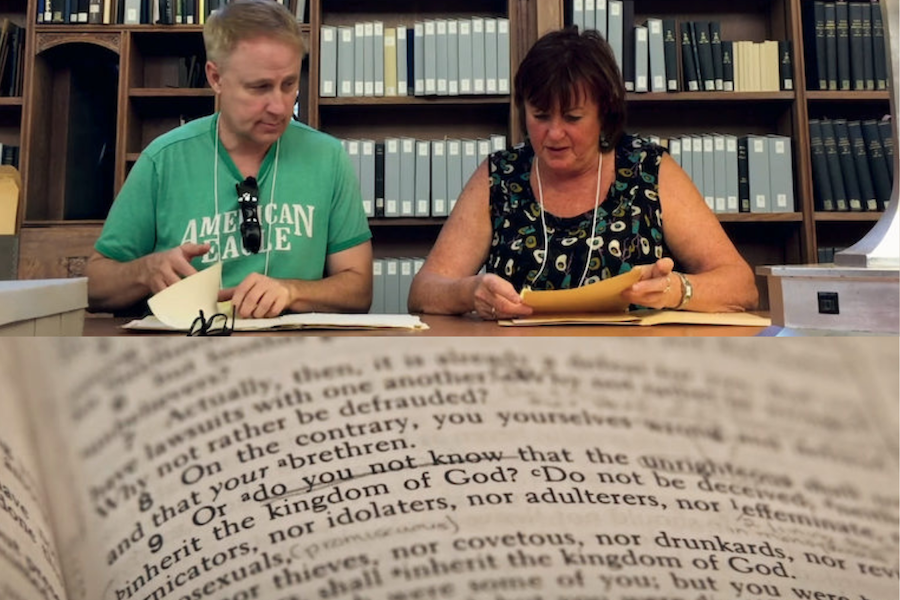








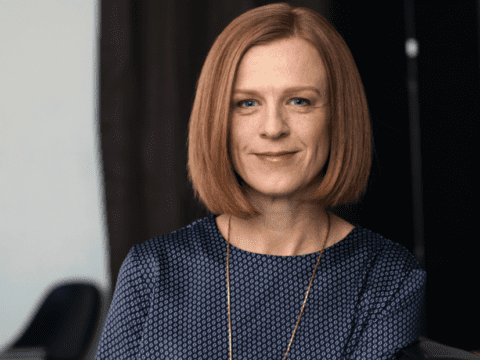

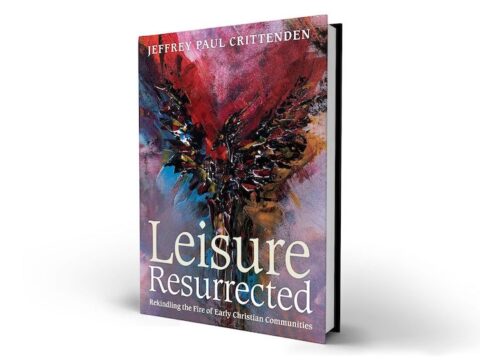

These arguments are 4 generations old now and are still mistaken. Liberals often portray this as a “mistranslation of the Greek” issue when it is an issue of the changing use of the English language. Many translations have been done since 1946, and scholars have always had the opportunity to change things again. However, the etymology and use of Arskenotoi is the joining of the words “male” and “bed/koitus”- or to have sex with. The word is a rare splice that follows it’s etymology: to have sex with a man. The assumption is the actor is male, and this follows the LXX translation of a similar phrase used in Leviticus 18 as translated into Greek. One could limit the translation to “male homosexuality” to be “more precise”, but it would not change the referent being homosexual sex. Further, Malakoi simply means “soft”, and is used to refer to food and clothing in all other occurrences in the NT. However, we are left here to judge the word by it’s companions in the context: a list of sexual sins. “effeminate” may be the best English word, but general effeminacy is not Paul’s concern. It is a sexual sin, and is either a gender denying expression or the effeminate/feminine position in illicit intercourse. Given that many societies found the penetrator in male homosexuality masculine and powerful, and the “receiving partner” effeminate and weak, Paul’s inclusion of both makes the locus of sin it’s illicit nature, not it’s conformity to false masculine norms common in sexually unequal relationships. Seeking to make this about modern notions of sexual violence is out of context and anachronistic interpretation (reading beliefs of another time into the time being analyzed). It is more honest to dismiss the apostle’s teachings as wrong than to claim they say what they do not. Many Liberal and affirming scholars have done this (See Dan O Via). It lacks the “perk” of pulling the Bible out from under historic Christianity, but it has the features of having integrity and intellectual and historical veracity.
is there a bible without homophobic themes that is actually accurate and hasn’t been tweaked during translation so people could “better understand it” (even though it was really because they didn’t like queer people) ??